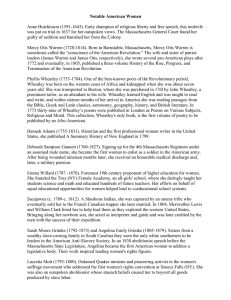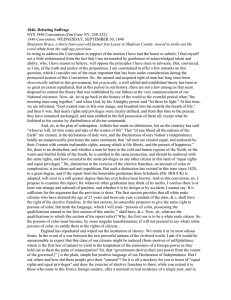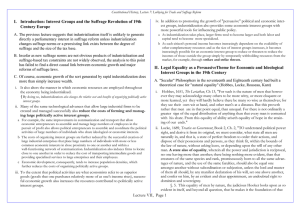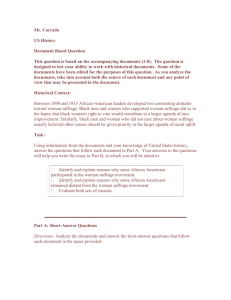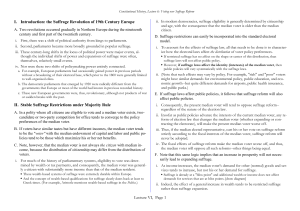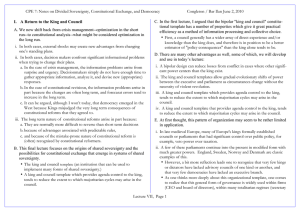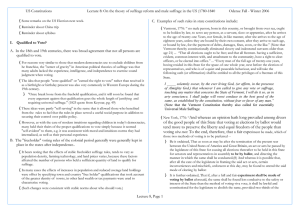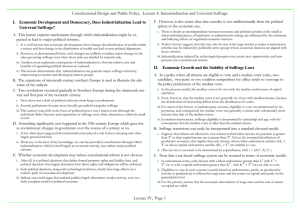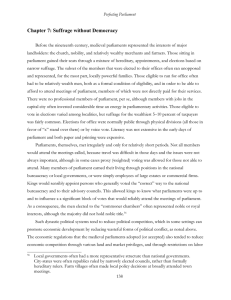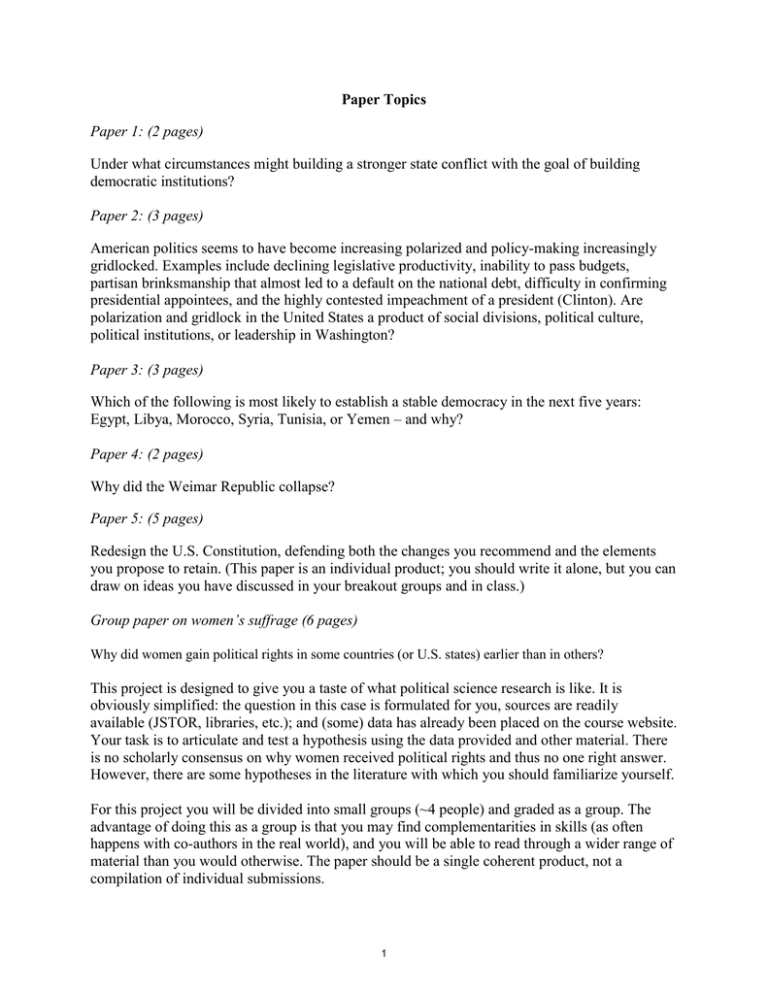
Paper Topics
Paper 1: (2 pages)
Under what circumstances might building a stronger state conflict with the goal of building
democratic institutions?
Paper 2: (3 pages)
American politics seems to have become increasing polarized and policy-making increasingly
gridlocked. Examples include declining legislative productivity, inability to pass budgets,
partisan brinksmanship that almost led to a default on the national debt, difficulty in confirming
presidential appointees, and the highly contested impeachment of a president (Clinton). Are
polarization and gridlock in the United States a product of social divisions, political culture,
political institutions, or leadership in Washington?
Paper 3: (3 pages)
Which of the following is most likely to establish a stable democracy in the next five years:
Egypt, Libya, Morocco, Syria, Tunisia, or Yemen – and why?
Paper 4: (2 pages)
Why did the Weimar Republic collapse?
Paper 5: (5 pages)
Redesign the U.S. Constitution, defending both the changes you recommend and the elements
you propose to retain. (This paper is an individual product; you should write it alone, but you can
draw on ideas you have discussed in your breakout groups and in class.)
Group paper on women’s suffrage (6 pages)
Why did women gain political rights in some countries (or U.S. states) earlier than in others?
This project is designed to give you a taste of what political science research is like. It is
obviously simplified: the question in this case is formulated for you, sources are readily
available (JSTOR, libraries, etc.); and (some) data has already been placed on the course website.
Your task is to articulate and test a hypothesis using the data provided and other material. There
is no scholarly consensus on why women received political rights and thus no one right answer.
However, there are some hypotheses in the literature with which you should familiarize yourself.
For this project you will be divided into small groups (~4 people) and graded as a group. The
advantage of doing this as a group is that you may find complementarities in skills (as often
happens with co-authors in the real world), and you will be able to read through a wider range of
material than you would otherwise. The paper should be a single coherent product, not a
compilation of individual submissions.
1
Your paper may concentrate exclusively on women’s suffrage (either across states in the U.S,
across certain clusters of countries, or across the entire world). However, please feel free to
consider other related issues of women’s emancipation, such as the right to hold office, to serve
as jurors, to render testimony, to own property, or to enter into contracts. Data on property rights
are less easily accessible and complete than data on voting, but they are potentially more
revealing, and I would encourage you to collect and analyze such data if you have time.
Please consult with me before diving into changes in family law (e.g., abolition of polygamy or
divorce law) or to any of the contested issues in the late 20th century – e.g., debates about “equal
pay for equal work”, enforcement of domestic violence laws, division of marital assets in the
case of divorce, access to birth control, abortion, any changes in the definition of sexual assault,
or sexual harassment in the workplace. All of these issues raise more significant data challenges
and more complicated questions about policy adoption than you are likely to be able to tackle in
the time permitted. However, I am willing to consider proposals that would address such themes
in a paper that also included analysis of women’s suffrage if you want to make the case for such
a project.
2
MIT OpenCourseWare
http://ocw.mit.edu
17.50 Introduction to Comparative Politics
Spring 2014
For information about citing these materials or our Terms of Use, visit: http://ocw.mit.edu/terms.




